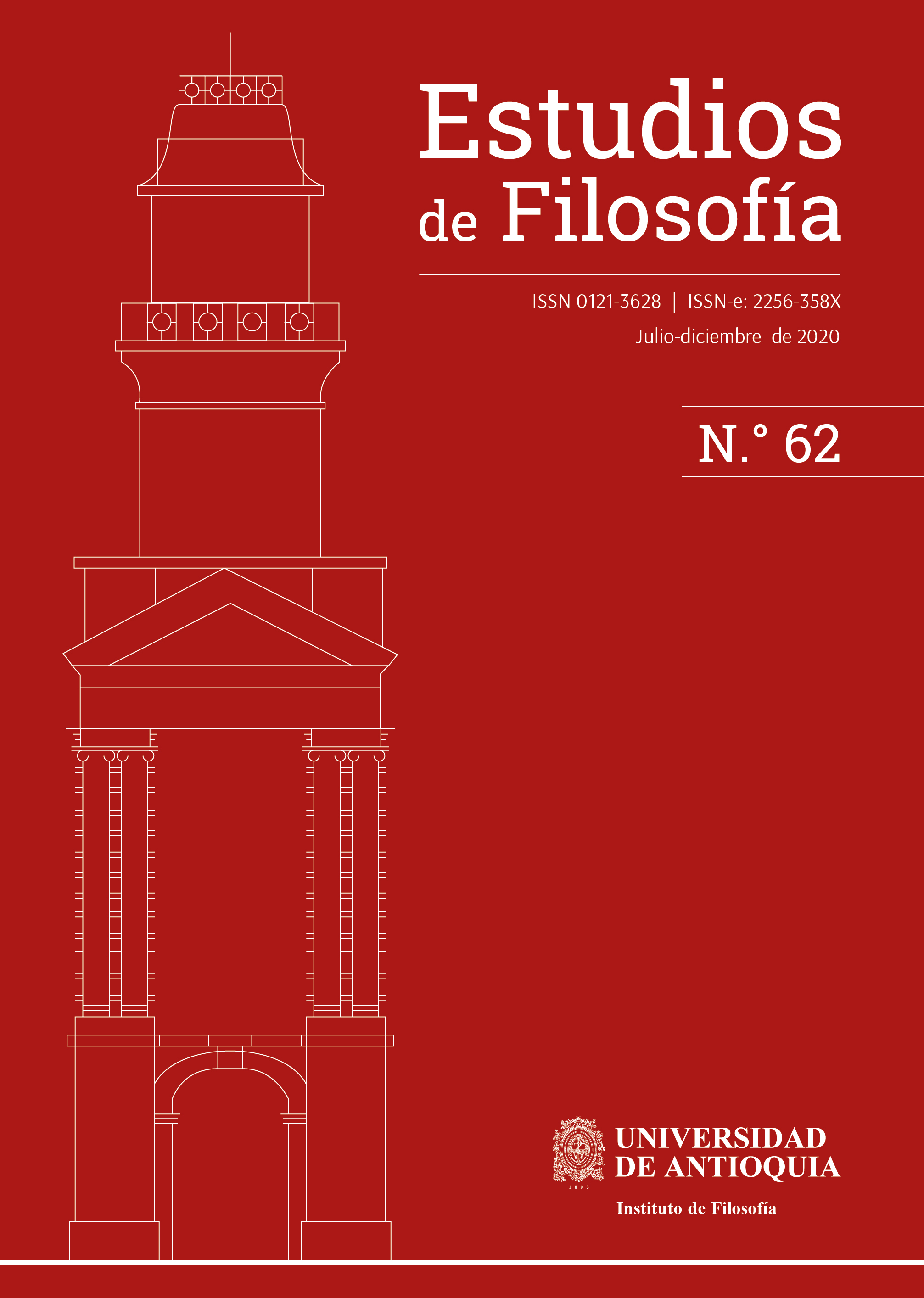Fetichismo y narcisismo ¿la base del capitalismo?
DOI:
https://doi.org/10.17533/udea.ef.n62a09Palabras clave:
narcisismo, capitalismo, fetichismo de los productos básicos, consumismo, marxismoResumen
Este artículo intenta retomar el concepto de Karl Marx de “fetichismo de los productos básicos” no solo como un fenómeno de la conciencia, sino como el verdadero corazón de la sociedad capitalista basada en el trabajo, el valor abstractos, el dinero y los productos básicos. Este concepto es a menudo mal entendido, así como el concepto de “narcisismo”. Siguiendo a Freud y Christopher Lasch, el artículo presenta el lado sociológico del narcisismo y cómo esta patología es la contraparte psicológica del fetichismo mercantil, formando así la subjetividad típica del consumismo.
Descargas
Citas
Freud, S. (1957). On narcissism: An introduction. In J. Strachey (Ed. & Trans.), The standard edition of the complete psychological works of Sigmund Freud (Vol. 14, pp. 73-102). London: Hogarth Press.
Jappe, A. (2017a). Les Aventures de la marchandise. Pour une critique de la valeur. Paris: La Découverte.
Jappe, A. (2017b). La Société autophage. Capitalisme, démesure et autodestruction. Paris: La Découverte.
Lasch, C. (1979). The Culture of Narcissism: American Life in an Age of Diminishing Expectations. New York: Norton.
Lasch, C. (1984). The Minimal Self: Psychic Survival in Troubled Times. New York: Norton.
Lukács, G. (1983). History and Class Consciousness.London: Merlin Press.
Marx, K. (1976). Capital: A Critique of Political Economy, vol. 1. (B. Fowkes, Trad.). London: Penguin.
Marx, K. (1991). Capital, vol. 3. (D. Fernbach, Trad.). London: Penguin.
Descargas
Publicado
Cómo citar
Número
Sección
Categorías
Licencia
Derechos de autor 2020 Anselm Jappe

Esta obra está bajo una licencia internacional Creative Commons Atribución-NoComercial-CompartirIgual 4.0.
Los autores que publican en Estudios de Filosofía acuerdan los siguientes términos:
1. El Autor retiene el copyright del "Artículo", por el cual se entiende todos los objetos digitales que pueden resultar de la subsiguiente publicación o distribución electrónica.
2. En conformidad con los términos de este acuerdo, el autor garantizará a Estudios de Filosofía como Editor el derecho de la primera publicación del artículo.
3. El Autor le concederá al Editor un derecho perpetuo y no-exclusivo, así como una licencia de la misma clase, de publicar, archivar y hacer accesible el Artículo parcial o totalmente en todos los medios conocidos o por conocerse, derecho y licencia que se conocen como Creative Commons License Deed. Atribución-No Comercial- Compartir igual CC BY-NC-SA o su equivalente que para efectos de eliminar toda duda, le permite a otros copiar, distribuir, y transmitir el Artículo bajo las siguientes condiciones: (a) Atribución: Se deben reconocer los créditos de la obra de la manera especificada por el Autor a Estudios de Filosofía, pero no de una manera que sugiera que tiene su apoyo o que apoyan el uso que hace de su obra. (b) No Comercial: No se puede utilizar el Artículo para fines comerciales.
4. El Autor puede realizar otros acuerdos contractuales no comerciales para la distribución no exclusiva de la versión publicada del Artículo (v. gr. ponerlo en un repositorio institucional o publicarlo en un libro) con la condición de que haga el debido reconocimiento de su publicación original en Estudios de Filosofía.
5. A los Autores se les permite y Estudios de Filosofía promueve publicar en línea (online) la versión pre-impresa del Artículo en repositorios institucionales o en sus páginas web, antes y durante la publicación, por cuanto que puede producir intercambios académicos productivos, así como una mayor citación del Artículo publicado (ver The Effect of Open Access). Dicha publicación durante el proceso de producción y en la publicación del Artículo se espera que se actualice al momento de salir la versión final, incluyendo una referencia a la URL de Estudios de Filosofía.















